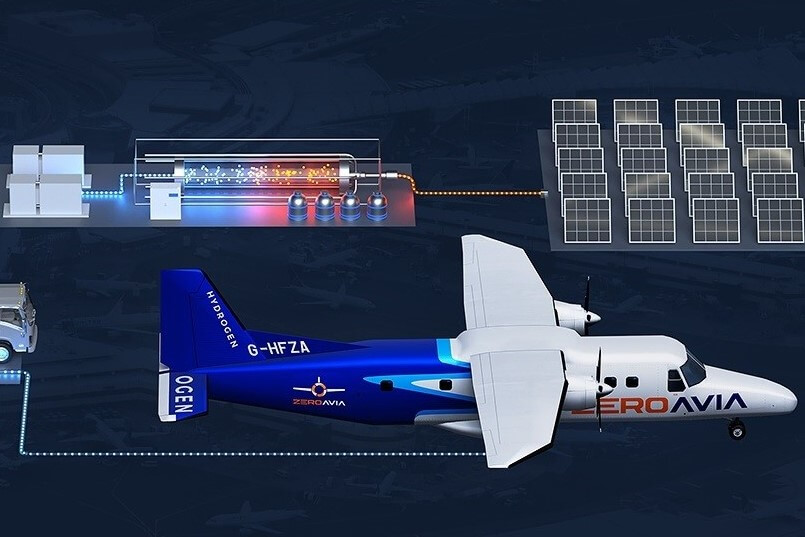Hydrogen-electric aircraft developer ZeroAvia will work with Shell, one of the world‘s largest oil companies, to design and build two commercial-scale mobile hydrogen fuel refuelers at ZeroAvia’s site in California, the US.
ZeroAvia also unveiled Europe’s first landside-to-airside hydrogen airport pipeline at its hangar at Cotswold Airport (GBA) in the UK.
Under the terms of the Memorandum of Understanding in the US, Shell will provide a compressed low-carbon hydrogen supply for ZeroAvia test facilities in Hollister, California, ZeroAvia announced on May 10, 2022.
“This strategic collaboration will support the development of ZeroAvia’s flight testing program in U.S. [..] and will advance the company’s Hydrogen Airport Refueling Ecosystem (HARE) on a larger scale,” ZeroAvia wrote in its statement.
For the 100-meter pipeline in the UK, ZeroAvia received support from the UK government’s Zero Emission Flight Infrastructure (ZEFI) program, which supports airports in preparation for serving zero-emission operations in the future.
The hydrogen-electric aircraft developer said that the pipeline will help to “explore the operational safety case for hydrogen pipelines and refueling infrastructure at airports.”
According to Arnab Chatterjee, vice president of infrastructure at ZeroAvia, the collaboration with Shell and the UK pipeline project represent the company’s commitment to the development of a hydrogen airport refueling ecosystem.
“Hydrogen-electric aviation is the only practical, holistic, and economically attractive solution to aviation’s growing climate change impact. Fuel provision needs to be economical and convenient for airlines to achieve operational cost benefits and ZeroAvia is leading these pioneering infrastructure developments together with leading partners like Shell,“ Chatterjee was quoted as saying in the statement.
ZeroAvia is currently focused on the development of its 600kW ZA600 hydrogen-electric powertrain in the UK, which is expected to undergo its first flight testing using its two Dornier-228 testbed aircraft in the upcoming summer of 2022. Once the initial tests are completed, the company aims to conduct more tests on its California-based demonstrator.
“The development of this 600kW powertrain is part of Project HyFlyer II and will deliver a fully certified powertrain for aircraft of up to 19-seats by 2024,” the company wrote.

